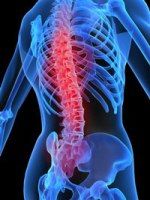NovImmune successfully completes NI-0801 Phase I clinical study
Advertisement
NovImmune announced the successful completion of the first phase I clinical study with its fully human monoclonal antibody NI-0801 targeting the chemokine IP-10 (CXCL10) in healthy volunteers. The randomized, double-blinded, placebo controlled, single centre, phase I study of escalating single intravenous doses of NI-0801 in healthy volunteers (study NI-0801-01) demonstrated that NI-0801 is well tolerated at doses up to and including 20mg/kg.
Chemokines are a group of low molecular weight proteins that induce the chemotaxis of different leukocytes to sites of injury or infection. IP-10 is constitutively expressed at low levels in thymic, splenic and lymph node stroma tissues, but its expression can be induced on a variety of cell types including endothelial cells, keratinocytes, fibroblasts, monocytes and neutrophils. IP-10 not only mediates leukocyte recruitment, but also drives T-cell proliferation upon antigenic stimulation. Cell migration in response to chemoattractants requires the retention of IP-10, which is also true for all other chemokines, in the vicinity of the site of inflammation to make sure cells are recruited where they are needed.
IP-10 expression at sites of inflammation, leads to local accumulation of specialized cells responsible for the inflammation process in a number of different autoimmune conditions including psoriasis, multiple sclerosis, ulcerative colitis, rheumatoid arthritis, atherosclerosis, liver fibrosis and sarcoidosis. Dr Penelope Ward, Chief Medical Officer commented that ‘since increased IP-10 (CXCL10) levels correlate with disease severity, an ability to neutralize its effects with a target specific monoclonal antibody offers a promising strategy for the treatment of diseases such as liver fibrosis and lupus, for which therapeutic options are currently limited.'
Most read news
Other news from the department research and development

Get the life science industry in your inbox
By submitting this form you agree that LUMITOS AG will send you the newsletter(s) selected above by email. Your data will not be passed on to third parties. Your data will be stored and processed in accordance with our data protection regulations. LUMITOS may contact you by email for the purpose of advertising or market and opinion surveys. You can revoke your consent at any time without giving reasons to LUMITOS AG, Ernst-Augustin-Str. 2, 12489 Berlin, Germany or by e-mail at revoke@lumitos.com with effect for the future. In addition, each email contains a link to unsubscribe from the corresponding newsletter.




















































